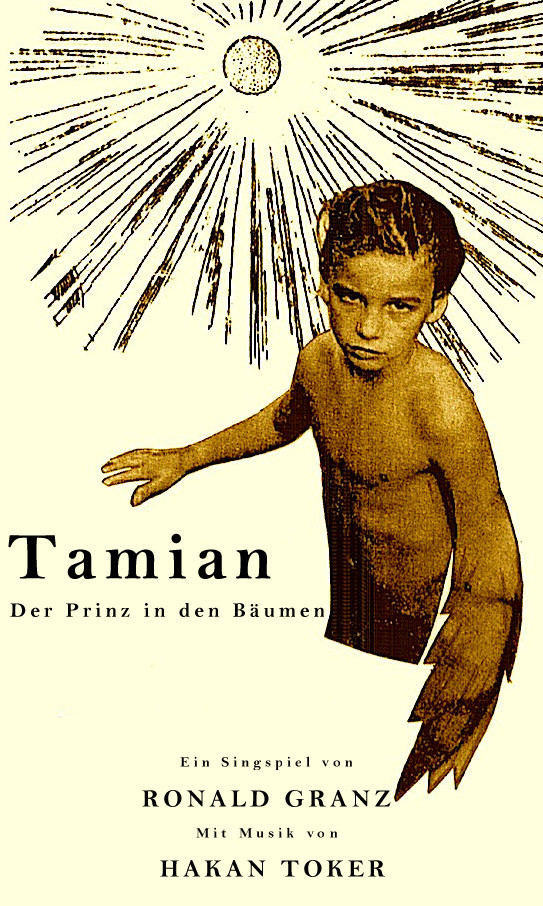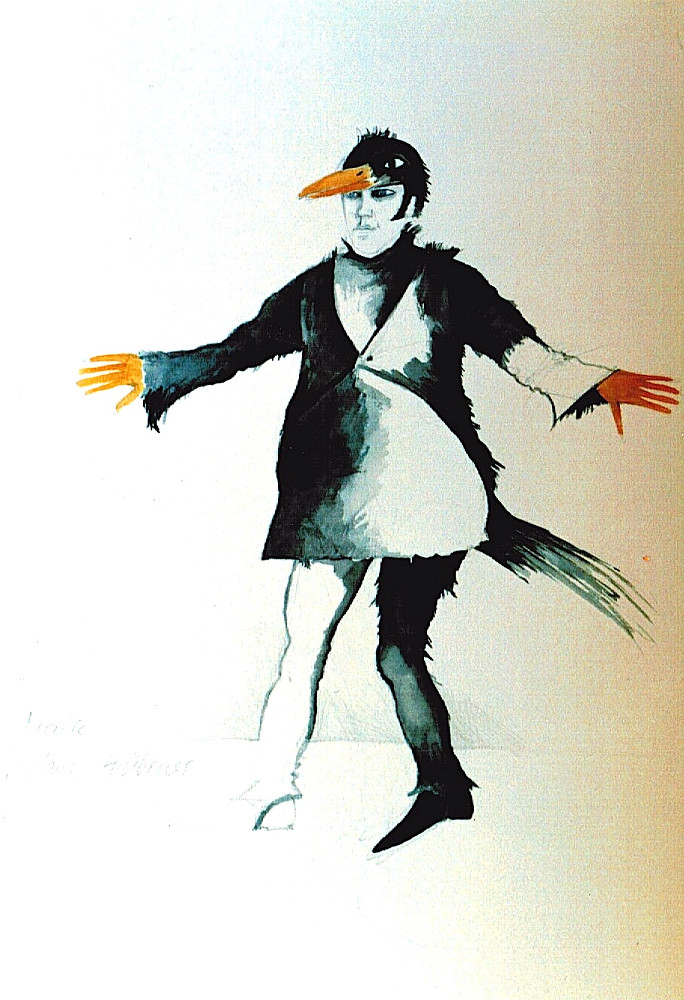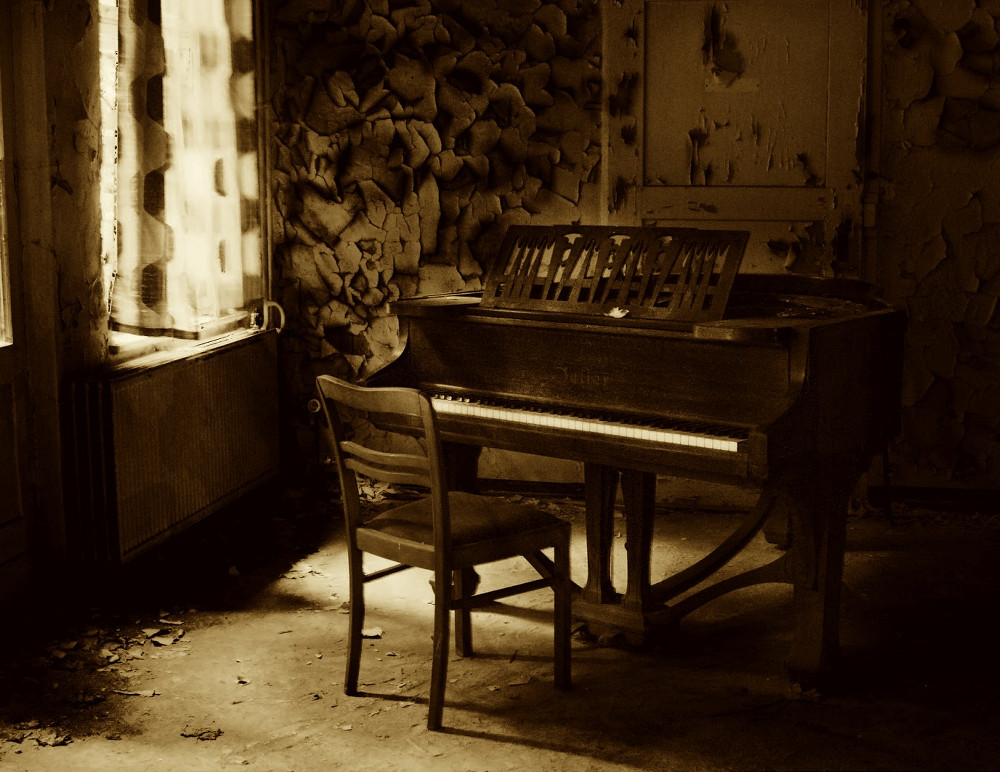RONALD GRANZ
dramatiker lyriker autor
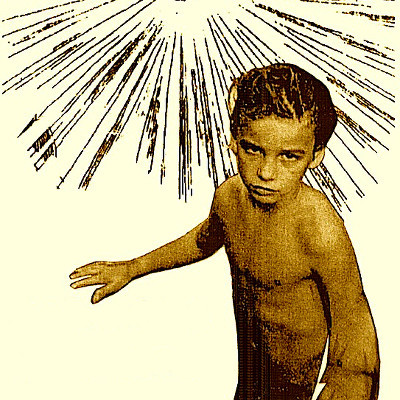
OPERA
Tamian – Prince in the Trees
The children opera „Tamian: Prince in the Trees“ plays out in an altogether different land and time. In the centre of the narrative is a young man, Tamian, born half man, half bird. But as a prince he cannot be both, therefore he is exiled and drifts through the world. Disappointed by man, he finds comfort with the birds, fore he speaks their language and sings with them among the trees.
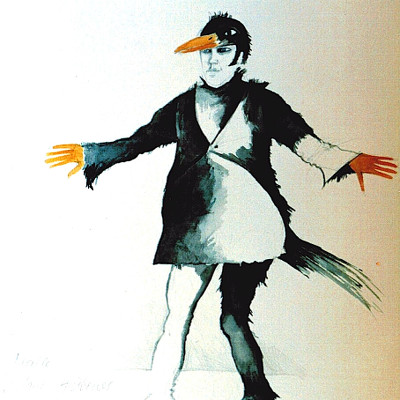
OPERA
Malle Stumbling-John
Way up north, between the fjords of old, Malle, the sometimes too dreamy and blue-eyed ring-oused boy stumbles through life. For this, he’s picked upon, because nothing he does he can do right. But one night he hears the lovely ring-oused girl Nadira sing „The Song of the Brave Ring-Oused Man“, and he falls in love with her. But their happiness almost does not last.
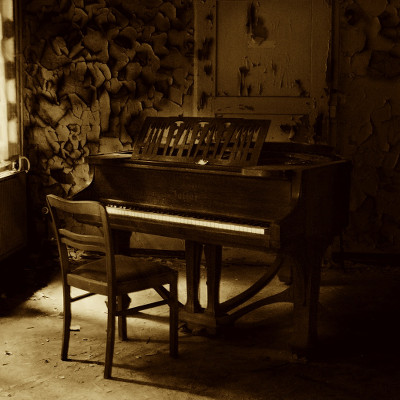
BALLET
23 Summer
The fascistic official Herbert Rimek and his girlfriend Zita live together with the citizens of their city through the atrocities of war and they are looking forward to a new life and the possibility of a positive ending of the war. Tonio, a young pianist arrives in the city. While Rimek is appalled, Zita is impressed by his charisma and physical attraction, and tries to arouse feelings in him for her, but he has only eyes for the tender Amelie. After a political affront during a piano concert, Zita denounces Tonio to the current regime.
OPERA
As a lifelong enthusiast for opera, Ronald Granz enjoys his works to be completed by astoundingly beautiful music. He especially pays attention to suitable transitions of his works, so they can be enjoyed by children.
Tamian - Prince in the Trees
The children opera „Tamian: Prince in the Trees“ plays out in an altogether different land and time. In the centre of the narrative is a young man, Tamian, born half man, half bird. But as a prince he cannot be both, therefore he is exiled and drifts through the world. Disappointed by man, he finds comfort with the birds, fore he speaks their language and sings with them among the trees. The princess Zisi is enchanted by this unusual boy, but her father, King Kaspar disapproves. The king’s sense of order in the world stands between the two. The cunning administrator Jisin promises the king money in exchange for his daughters hand in marriage. Tamian’s standing with the king is further strained, when he frees the king’s favorite bird from its cage. The tension culminates, as one day the princess is found motionless on the beach. Tamian tries with all his might to change fate. The children’s opera takes us into a world of fantasy and music, and at the same time, it tries to eliminate prejudice towards everything alien. Premièred at TPF Potsdam.
Malle Stumbling-John
Way up north, between the fjords of old, Malle, the sometimes too dreamy and blue-eyed ring-oused boy, stumbles through life. For this, he’s picked upon, because nothing he does he can do right. At home he clumsily knocks over the big earthenware jug with food, and during his attempt to fly he plunges into the sea. But one night he hears the lovely ring-oused girl Nadira sing „The Song of the Brave Ring-Oused Man“, and he falls in love with her. He is starting to care for her and brings her food and presents. Soon after, they become man and wife. All could be happy, but when he finds out he cannot fit into their nest in the tree, in order to feed their offspring, he is devastated. But he doesn’t falter or despair. When Nadira is captured by a feather trader, he seeks out the wise owl Murun for help. She advises him to go to the old oak tree and rub his beak on the oak all night long, until it glows. Malle does as he was told, and the next morning his beak has become so long he can pass food to his starving children, without even entering the tree. Malle is grateful for the owls help and he starts to sing „The Song of the Brave Ring-Oused Man“ to himself all night long. Nadira, who was thrown away by the feather trader, because of her inconspicuous feathers, hears Malle’s singing, which guides her way back home. From that day on, so far up in the north, no one ever talks about a stumbling-john anymore. Even if Malle is not the shining hero, he still inspires confidence in children and adults alike, who sometimes also stumble through life. He shows us how to overcome mishap and inadequacy, and to trust in ones strengths, and how to keep hanging on.
23 Summer (Ballet)
The fascistic official Herbert Rimek and his girlfriend Zita live together with the citizens of their city through the atrocities of war and they are looking forward to a new life and the possibility of a positive ending of the war. A young pianist, Tonio, arrives on the scene. He is very conscious of his body and plays with his fingers on walls and all over his body, and therefore angering the older Rimek. Zita, however, is impressed by the young artist’s charisma and physical attraction, and tries to arouse feelings in him for her. But the young and tender Amelie is full of love for Tonio as well. Zita watches Amalie jealously, as her own sexual ambitions towards the younger man are blatantly refused. Together with Amelie, Tonio gives a concert in his parent’s house. Beforehand he hung a picture of the composer Rachmaninov, who has fallen out of favor with the soviet regime. This political affront shocks Zita, who, full of anger and resentment, denounces Tonio, with the soviet party officials in the city. Now, only the executioner awaits Tonio. Amelie is distraught, and even Zita suddenly is overcome with self doubt and remorse, for she still harbours feelings toward Tonio. But, the guillotine is already waiting…




